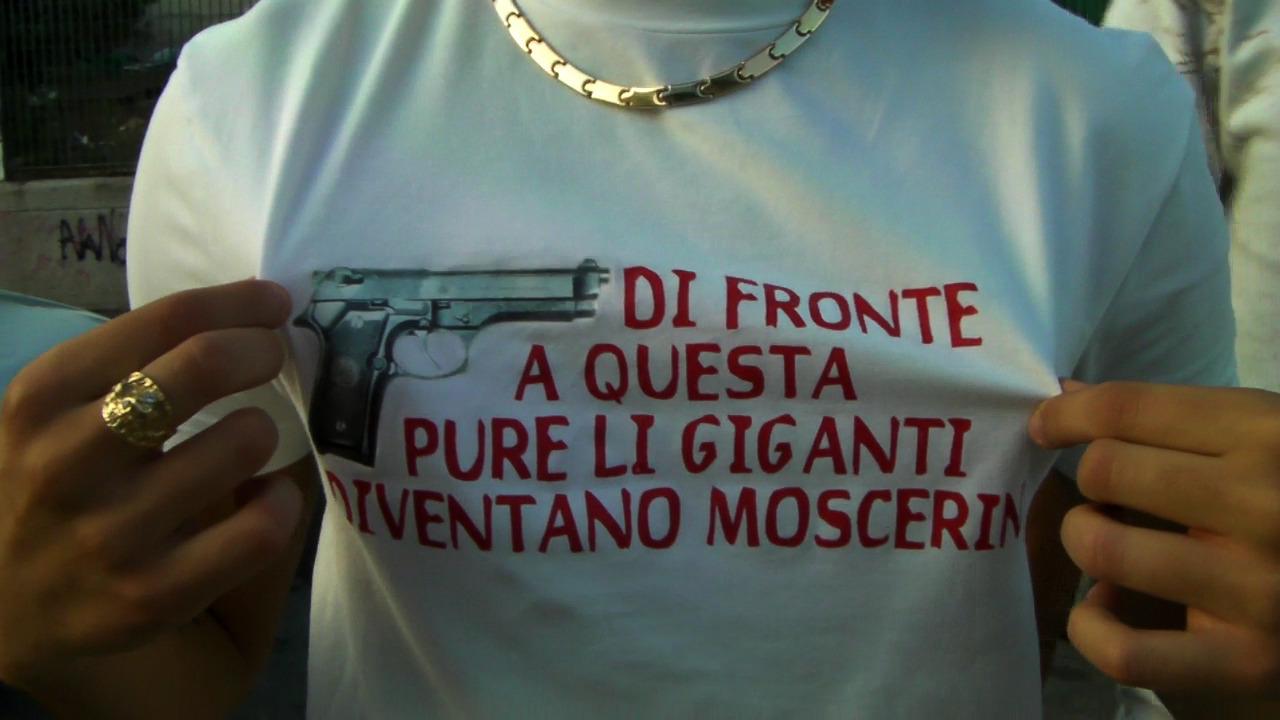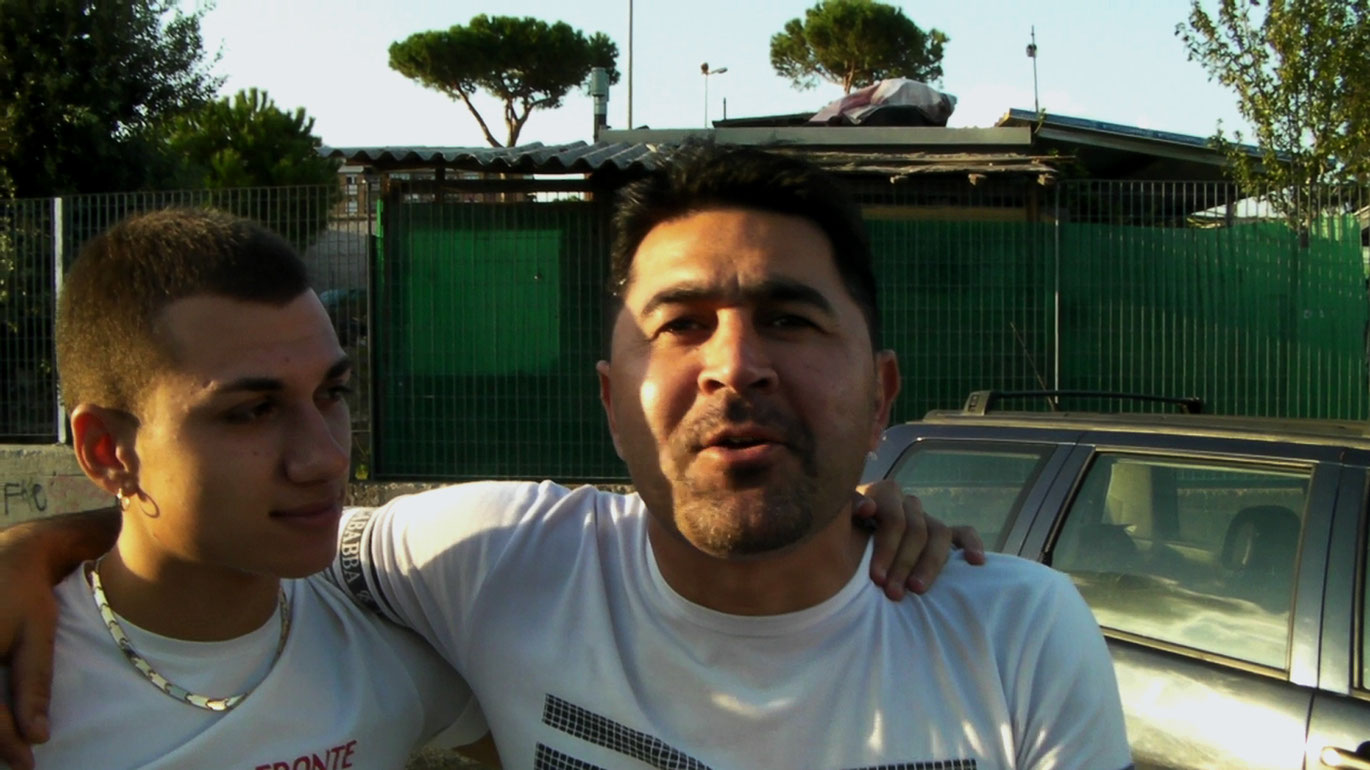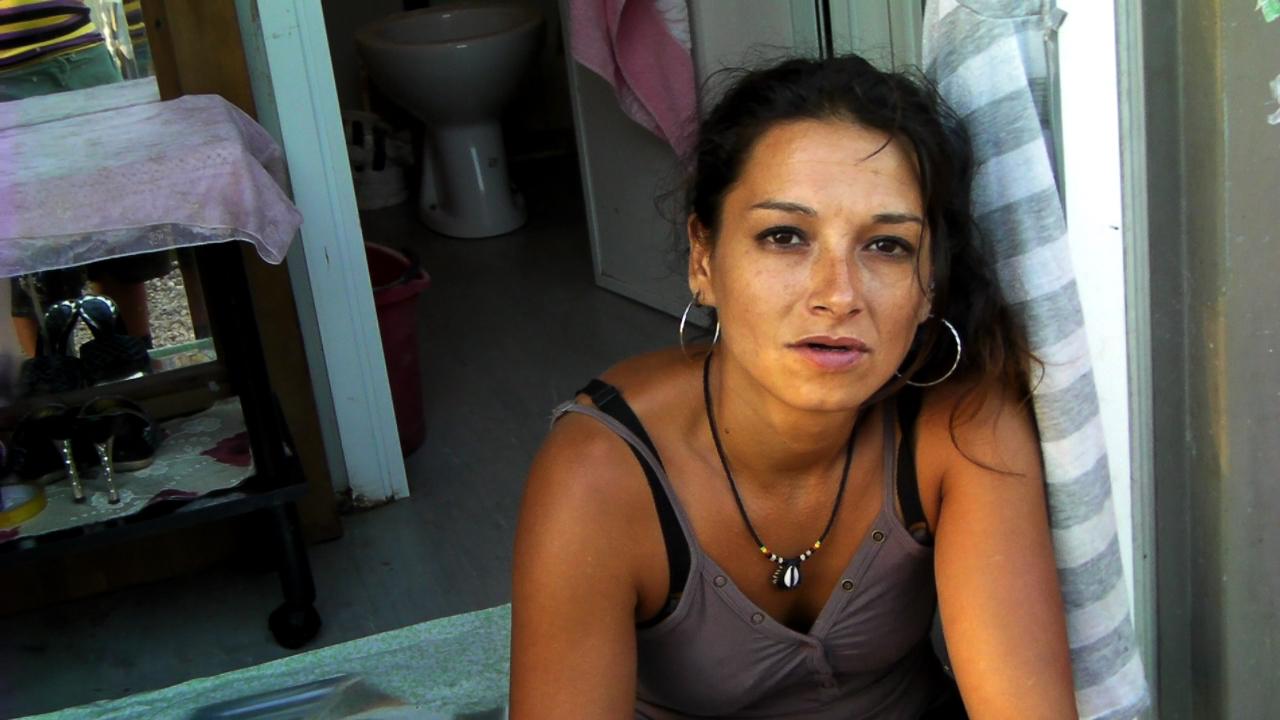Romanes
An interrogation. Young people look into the camera. Somewhat shyly. Some of them smile. They provide information, about their daily lives, their friends, their jobs. A number of them are unemployed. Their desire for a job, "any kind of" job, their own apartment, a family. Serious moments are accompanied by a certain amount of reserve in the camera´s presence - and their enjoyment of the situation provides a stark contrast. The border between them and the surrounding visual space is permeable. There are apparently some others off camera that the interviewees glance at occasionally, which increases their confidence. The interviewers are soon revealed to be playing along in this game of questions and answers, which is somewhere between friendly provocation and knowing consent.
"How old are you?", Romana, a girl in the initial stage of puberty, is asked politely. "Me? Seventeen!", she lies with a smile. "What´s your hobby?" continues the interviewer, switching to a familiar tone. "My hobby?", Romana thinks before answering: "Leaving the camp". The question of where she goes is followed by more thinking. Then she turns to the side and asks someone, "What does hobby mean?"
The camp, home to Roma and located in Rome´s Centocello neighborhood, represents normality. The world outside is a "hobby", and they don´t know precisely what it is. Or it´s a dream that fills out their reality. Reality is for them a dreary life of poverty and even worse prospects for employment. For this reason the young people who are given an opportunity to work with cameras and ask the questions in this video project tend to depict themselves while dreaming. Or actively shaping a social role they grow out of in their play with and in front of the camera rather than (re)presenting it as their personal fate. Solely the two Italian guards, who have the same first name and who have both been on the job for 30 years, seem to be pinned down by fate.
When Romana´s asked if she´s Italian, she answers no, and the interviewer - in this case a woman - corrects her firmly. She was born in Rome, so she´s Italian. This role playing, mostly cheerful up to this point, suddenly turns serious when the young people find a way to express themselves as an ensemble which calls their role into question, thereby redefining it.
(Robert Buchschwenter)
Romanes is based on 270 minutes of video footage shot in 2009 at a video workshop with young Roma and Sinti. Called "villaggio attrezzato via dei gordiani", this camp was held in Rome´s Centocello neighborhood. The main intention of this project was portraying a culture and a generation whose protagonists, though they were born in Rome, have no right to Italian citizenship. The hope was that Romanes would enable the young participants to reach an audience they would not normally have access to.
(Annja Krautgasser)
„We live in a shit camp.“ (DE) Rom, Roma, Romania, Romana
Nicht weit von Casilino 900 befindet sich das von zwei Wachposten kontrollierte Containerlager Villaggio Attrezzato, aus dem die Videobilder für Annja Krautgassers Video- und Kunstprojekt Romanes stammen. Dieses Lager ist offensichtlich keine aus der Not selbstproduzierte Siedlung, sondern eine staatlicherseits zugewiesene Zwangsmaßnahme.
Der kurze Film Romanes ist aus den 270 Minuten Material eines Workshops entstanden, in welchem die jugendlichen BewohnerInnen des Lagers sich gegenseitig vor der Kamera befragen und diese auch selbst bedienen. Sie erhalten und geben sich eine Stimme, ein Gesicht, einen Körper. Das Mädchen Romana beschreibt eine Realität, in der das Verlassen des Camps ihr Hobby bedeutet und eine unerreichte „Normalität“ außerhalb der Bewachung wartet, mit Haus, Auto und Familie, wie es Vesna artikuliert.
„Wir sind alle Italiener“, spricht eine Stimme hinter der Kamera, doch Romana empfindet es als in Rom geborene Roma nicht so. Ihr Platz, der Platz der Romanas, der Roma, der Rumänen oder exjugoslawischen Bürgerkriegsflüchtlinge, ist der Rest zwischen Schnellstraßen und Brücken, Autobahnen und Zugtrassen.
An anderer Stelle hatte ich über die inzwischen geräumte Roma-Siedlung Gazela geschrieben, deren Name von der gleichnamigen Autobahnbrücke in Neu-Beograd stammt und die Europa mit Asien verbindet. Außer den wohl tausend BewohnerInnen in ihren über zweihundert Behausungen kommt hier kaum jemand vorbei, es sei denn, es soll etwas verkauft, Müll rasch abgeladen, Leute verprügelt oder Molotowcocktails geworfen werden.
„Wir“ schauen freundlich vorbei. Die Kamera fertigt und festigt Selbstpositionierungen. Die Frage bleibt offen, ob dies wahrgenommen wird. Und was machen „wir“ da, mit unseren Augen, Kameras und Körpern? Bestätigen „wir“ nicht im Besuch das „ihr“?
Ein Schock ist der kurze Schwenk auf einen Mast, an dem in alle Richtungen ausgerichtete Videokameras befestigt sind. Das römische Roma-Lager wird dauerüberwacht; der Staat macht sich hier ein ununterbrochenes Bild. Indem die Kameras herabblicken, konstituieren sie kontinuierlich das „Andere“. Was zurückbleibt, sind HD-Videokameras, welche den Jugendlichen nach dem Workshop geschenkt wurden.
Jochen Becker
Romanes
2010
Austria, Italy
16 min 10 sec
Documentary
Italian
English



